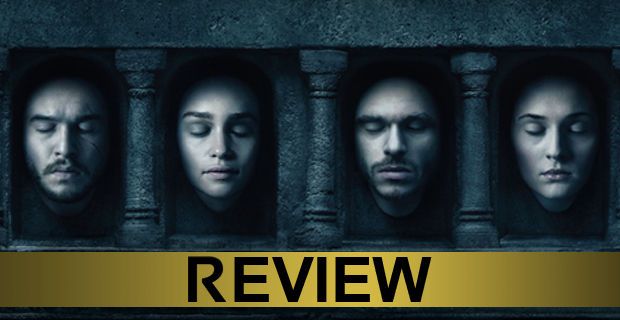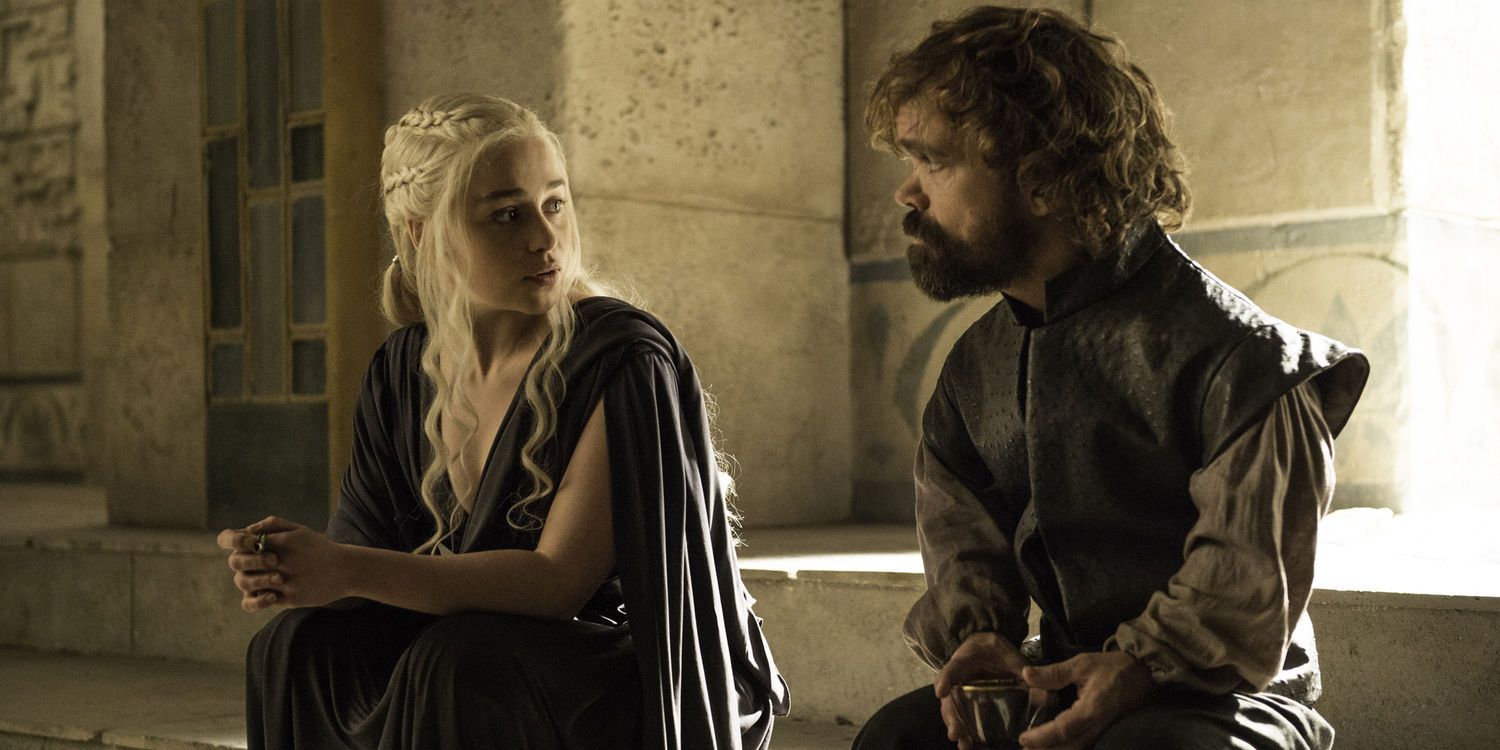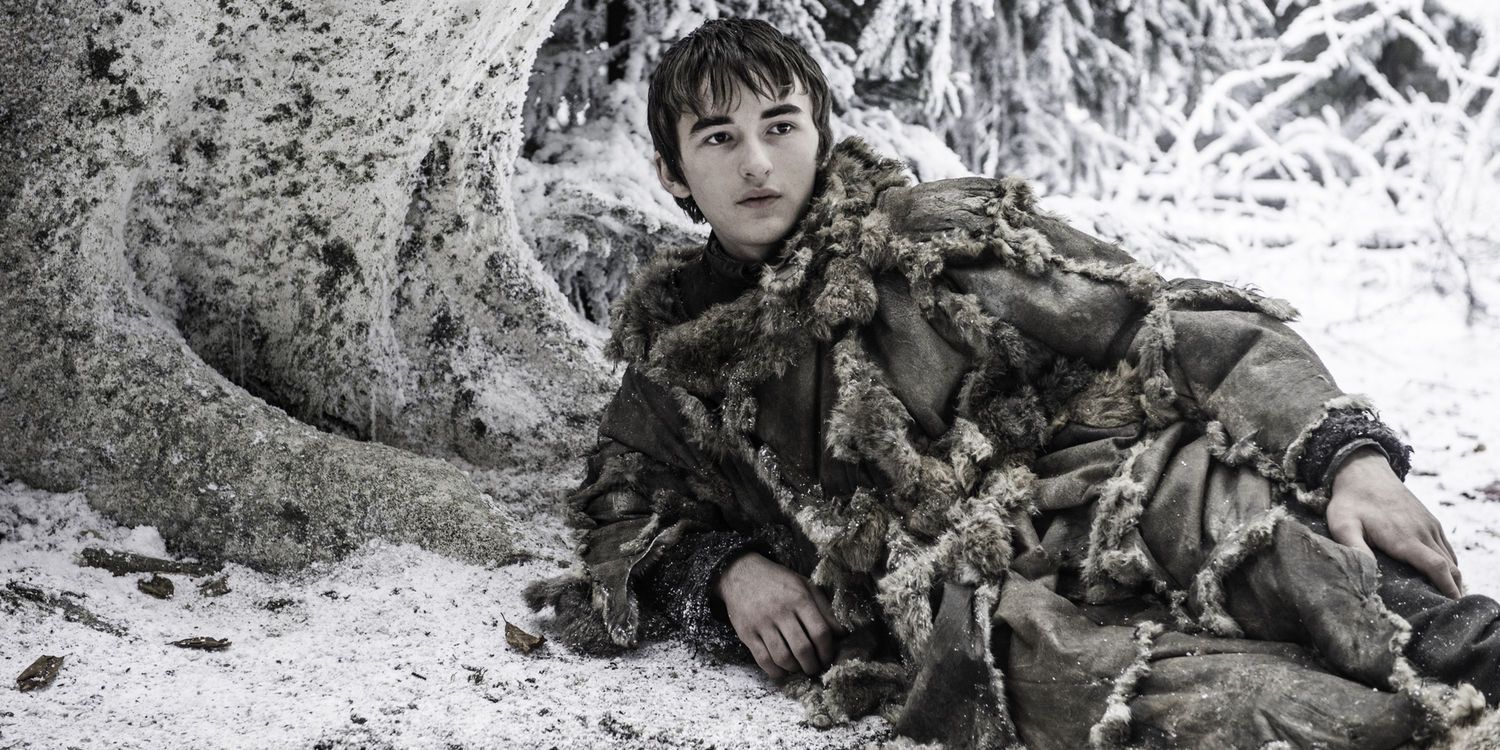[This is a review of the Game of Thrones season 6 finale, 'The Winds of Winter.' There will be SPOILERS.]
-
If one were pressed to choose a word that sums of Game of Thrones season 6, the clear frontrunner would have to be: "victory." The season was one victory after another for many of the show's characters that have been brought low and kicked while down for so many seasons. It was also a victory for the fans, as season 6 delivered some of the most rousing moments in not only the history of Westeros, but in the series as well. Even painful moments like the death of Hodor brought a sort of exhilaration to the show that hadn't been felt in a long time. Although it mirrored moments like the beheading of Ned Stark, and the death of Robb at the Red Wedding, running underneath the "Hold the door" moment that launched a thousand memes was a previously undiscovered current of possibility. What once was a series summed up in a Tyrion monologue about a beetle-smashing cousin was now suddenly faced with the genre-bending possibility that things could be undone or the very Game of Thrones-y probability that Bran is the inadvertent architect of everyone's misery.
While season 6 was, by and large, an anomaly for the series, as it featured resurrections of many kinds and, as previously mentioned, victories for those who had experienced none, there is still the question of where it's all headed. Last week's 'Battle of the Bastards' was astonishing in its visual spectacle, but it also felt understandably predictable. The series is down to a handful of characters that, for the most part, have to survive to the end, regardless of how Game of Thrones plans to play out – either by continuing to veer into conventional fantasy conventions or by subverting them as it has throughout the previous five seasons – so its hand was forced in terms of the battle's conclusion.
But having the series whittle its core cast down to these remaining Starks, Lannisters (by name and genetics), Targaryens, Greyjoys, and one man bun-wearing bastard means more and more, the bigger moments are going to come from a character level. That's been teased as season 6 prepares to end with an answer to what Jon and Sansa's relationship will be from here on out, and, equally pressing, what Cersei plans to do now that her options against the Faith Militant have quickly run out.
Apparently, what Cersei plans to do is waterboard Septa Unella with some of Dorne's finest red wine, while extoling the virtues of doing what feels good. Afterward, Cersei plans to tell the Septa "shame," while FrankenMountain makes whatever remains of Unella's life a painful experience. It's an ugly picture, but that's what victory looks like in King's Landing when Cersei's back is to the wall: it's all plumes of green fire, dead sons, and zombie strongmen doing unspeakable things to smirking Septas. In other words: it's ugly. But that's what happens when you take away scheming Cersei's trial by combat; you get the Sept of Baelor blown to hell and Margaery, Loras, the High Sparrow and a great many others along with it. You get a resounding victory from the woman Olenna Tyrell described just a few weeks ago as being utterly alone. (Bet you wish you'd just let the undead Clegane pry the head off the Faith Militant's champion and been done with it, don't you High Sparrow?)
The loss of so many players – Marge, Mace, Loras, High Sparrow – from the great game is significant, but so is the idea that their lives being lost is a "victory" to Cersei. It speaks to a concerning thread that has reared its ugly head over and over again in season 6, one in which the act of vengeance isn't mere recompense for past crimes, but rather a bloodthirstiness instilled in these characters by virtue of the world they live in. As Dany says to Yara, while hearing the would-be queen of the Iron Islands' sales pitch/Tinder profile, she intends to leave the world a better place than the one her father left for her. Cersei's revenge, then, her utter disdain for life and her desire to "do what feels good," is the opposite; it's the extreme end of where a thirst for vengeance can take someone. And yet it's not too far off from where season 6 has led many of its characters – Dany included.
But that's what victory has increasingly begun to look like in Game of Thrones: revenge. And now, it's even more difficult to tell the two apart as victory comes complete with a dead boy king remanded to a pile of ash, a betrayer's throat slit, a sadistic rapist and murderer eaten by his own dogs, and the Dothraki patriarchy burned to a crisp. These are examples of victory and revenge, and yet because this is Game of Thrones, the intertwining of the two is as expected as Margaery's long game for the Faith Militant and Tommen and King's Landing are irrelevant. Anyone who was wondering whether or not the series could still catch its audience off guard needs look no further than Cersei's wildfire plan. The destruction of the Sept of Baelor and all those inside is one thing, but with it goes Margaery's plans, the ones she assured her grandmother she had with an illuminating note that was of passed off at great risk to them both. The investment the series made with Margaery's thread and manner in which it was abruptly cut short, the telltale indifference that was shown to her cunning and intelligence and planning was maybe Cersei's greatest victory, but it also demonstrated the series hasn't lost a step when it comes telling a story: even the greatest potential can be rendered moot in the blink of an eye.
That makes the remainder of the characters' journeys more fraught than might previously have been thought. While season 6 showed characters winning, attempting to right so many past wrongs, or simply getting revenge, their victories – insomuch as they can be classified that way – aren't necessarily indicative of a Game of Thrones that no longer has any intention of brutalizing its most well-liked characters. Instead, it’s the characters themselves that will be tested as the series moves on. Brothers and sisters seem headed toward possible conflict. As Jaime bears witness to Cersei's coronation, he wears an expression not far removed from Sansa's, as Jon is hailed king of the North despite his bastard status.
There's no telling what the tough-as-nails Lyanna will think if they ever learn of Jon's true heritage, but that would require Bran making it out of the North and being reunited with his siblings. Stranger things have happened; just look at Arya's storyline since she headed to Braavos. After learning the secrets of the Faceless Men, she's made like Lady Crane and taken the show on the road – all the way to the Twins and to the kitchen of Walder Frey. The look on Arya's face is very different from that of Jaime and Sansa; it's one of satisfaction, but it's no less troublesome for her character. What was once a girl with a list of names and a chip on her shoulder is now a person for whom murder comes easy (and with no small amount of pleasure, it seems). Smiling while a man – even one as awful as Walder Frey – bleeds to death is the end result of having lived in a world left by men like the Mad King and Balon Greyjoy. They kept turning the wheel, and Arya's just more proof it needs breaking.
On that note, Game of Thrones concludes season 6 with the culmination of another fantasy: Dany's dream to one day set out to reclaim the Iron Throne. Even as the score soars along with her dragons, there's the slightest hint of something as her fleet makes its way across the sea: uncertainty. Dany may be the conquering hero or she may be the worst thing to hit Westeros since her father.
-
Game of Thrones will continue with season 7 in 2017 on HBO.



